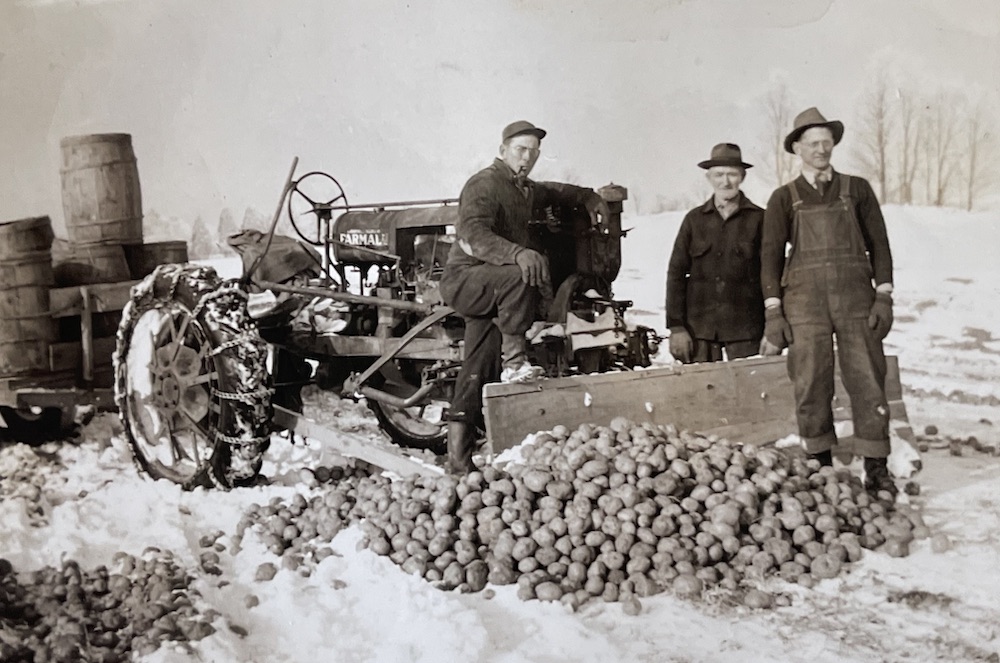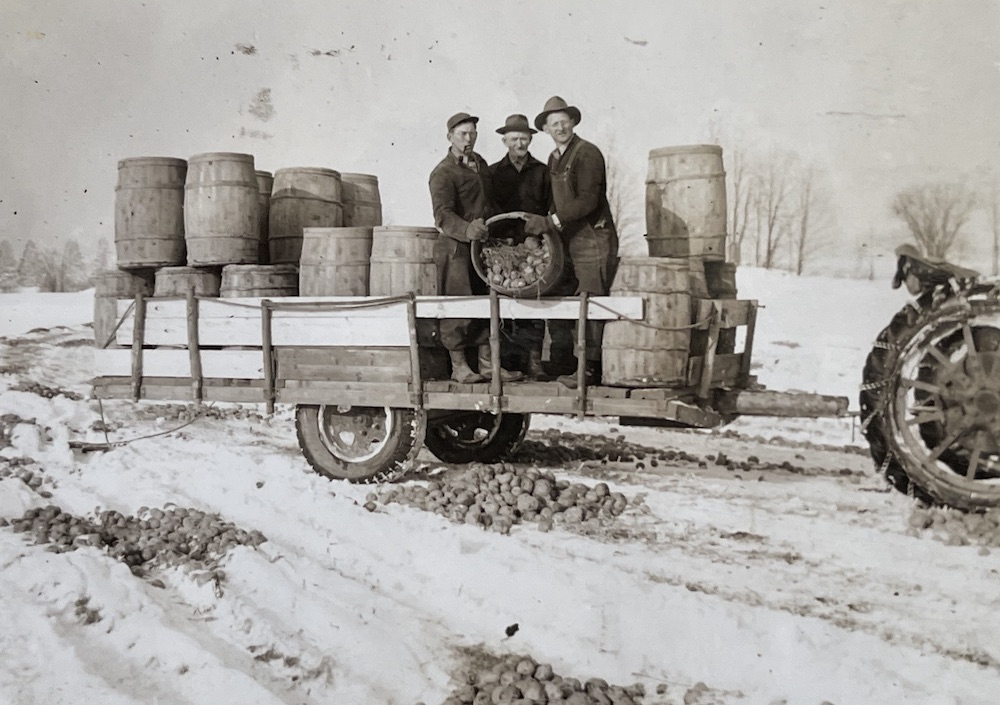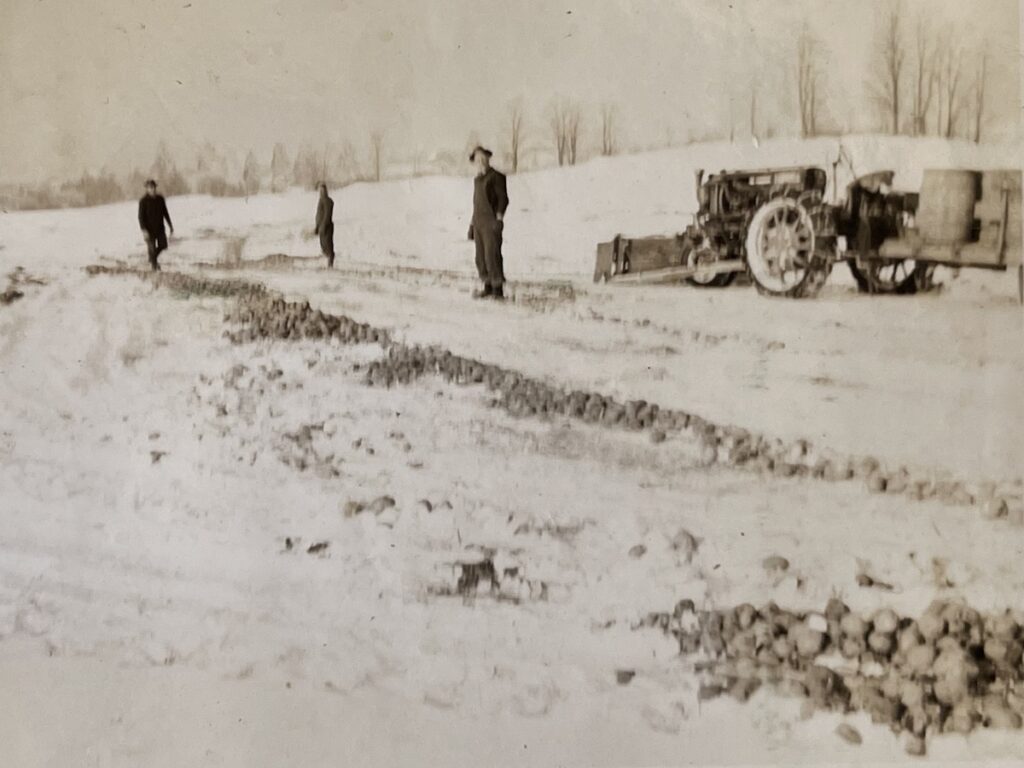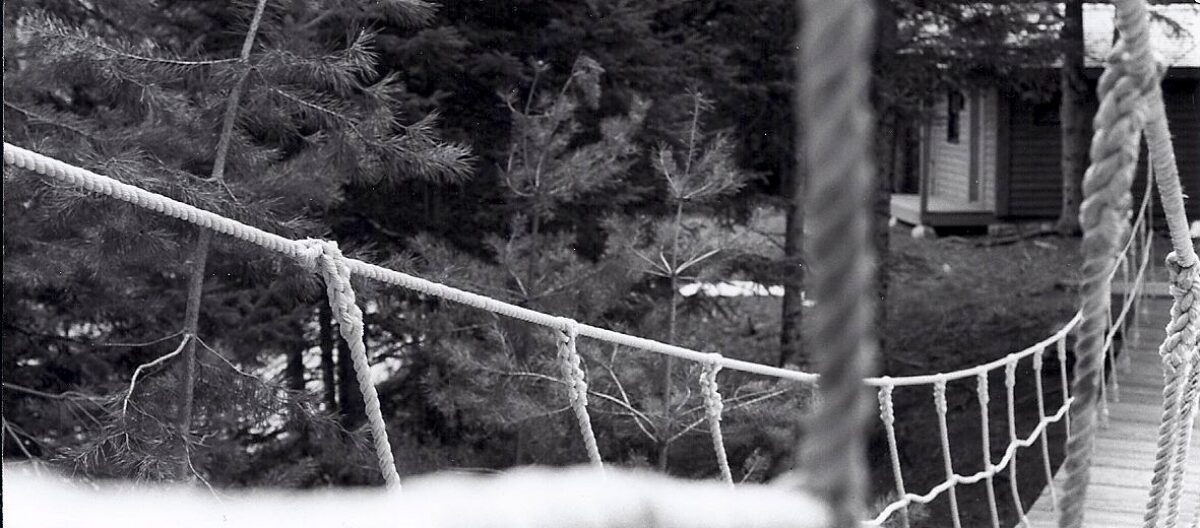DUMPING POTATOES
The Isolation Blues;
reflections during covid-19

When my father was once asked if he was a gambling man he responded by saying, “Well, I’ve never been to Atlantic City or Vegas but I play the mercantile exchange every day.” As a business man and life-long farmer my father was well acquainted with the boom and bust cycle of agricultural commodities and the American market. My father used to keep an eye on the current price of potatoes per barrel in the newspaper like I followed the sports section. That’s how every day started in our household. The Hutchinson farm was fifty acres with about forty of those suitable to grow potatoes. In later years as Dad increased the size of the operation he rented acreage from nearby farms, sometimes as far north as Bunker Hill on the south side of Bridgewater in the 1970s. His highest acreage was one hundred and twenty which was about the average size of the family farm in Monticello at the time. According to the town books there were fifty-five farms in Monticello in 1975 and then began the gradual demise of the family farm as larger commercial farms and more acreage became the new farm model. The last crop of potatoes planted on the Hutchinson farm was in 1983, the land rented out to a larger farmer. In 1985 the farm was placed in a USDA soil preservation program taking the land out of commercial production but preserving it for future usage and several acres were planted in conservation trees. The land is now out of the program and the fields are mowed annually keeping them ready for whatever new crop might be viable.
In these old photographs my Uncle John, my grandfather and my father are dumping excess potatoes in the back field on the Hutchinson farm. As part of the Agricultural Adjustment Act (AAA) of 1933, the federal government paid farmers to dispose of surplus food commodities in order to keep market prices stable. I’m not sure how often this occurred in The County, but these pictures document one such occasion. My Dad lived through the great depression and I know how he hated to waste good food, but this was one of the business practices part of US farming at the time. My father also shared that some farmers (he never said who) took the government check and sold the potatoes anyway. My father made money some years and lost plenty of money in others, but farming was in his DNA. He ate potatoes three times a day and worked in them the rest of it, but I don’t think he ever wanted to really do anything else. Since it was highly unusual for my father to take time to stop work and stage photos such as they did here, I’ve always found them interesting. I’ve also wondered (and still do), “Who took the darn pictures?”
In the woods,
Dave
March 2, 2022



Your dad is looking pretty dapper while dumping potatoes. Thanks for sharing these. Nice to see the photo of my great grandfather!
If you look closely I believe my father was wearing a dress tie. He considered himself to be a “gentleman farmer.”
Thanks for sharing these pictures- I had never seen these ones of Dad.
I appreciate your Dad taking taking the time to light his pipe for the photo op…
it must not have been too cold a day.
I’m a southerner so don’t blame me, but I never pictured potatoes and snow together. Makes sense when I think about it though. Great story and photos
Part of a potato farmer’s off-season work was keeping his crop stored (and warm) until it sold and shipped to market. One more reason why you would hate to dump it after all that effort…I remember Dad walking in a snow storm to the top of our hill where he had potatoes stored just to keep the fires going.
It’s nice to see the photos and read the stories. Thanks for putting it together.
The only thing I didn’t like is the thought that I am now older than then my Grandfather in the photos. How in the world did that happen…
Thank you for posting Steve!